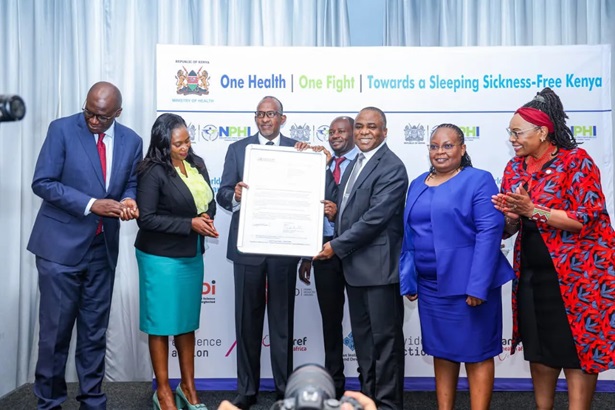
Kenya has officially been recognised by the World Health Organization (WHO) as the tenth country worldwide to eliminate human African trypanosomiasis (HAT), commonly known as sleeping sickness, as a public health threat.
This landmark achievement marks a significant victory in the longstanding battle against this deadly tropical disease in sub-Saharan Africa.
Sleeping sickness is caused by the parasite Trypanosoma brucei, transmitted to humans through the bite of infected tsetse flies. If left untreated, the disease is almost always fatal.
The parasite crosses the blood-brain barrier, attacking the central nervous system and triggering severe symptoms such as behavioural changes, confusion, loss of coordination, and disruptions to the sleep-wake cycle—giving the disease its ominous name.
Historically, sleeping sickness has affected isolated rural communities where diagnosis and treatment were challenging. Comprehensive awareness campaigns, active screening, and improved access to healthcare have been crucial in reducing new cases and controlling the spread of the disease.
Kenya joins nine other African nations to reach this milestone: Benin, Côte d’Ivoire, Ghana, Guinea, Equatorial Guinea, Uganda, Rwanda, Chad, and Togo. These countries have benefited from coordinated efforts among governments, technical partners, and local communities.
WHO Director-General Tedros Adhanom Ghebreyesus hailed the achievement as evidence of progress against neglected tropical diseases driven by persistent regional and international commitment. He emphasised that the ultimate goal remains the total eradication of sleeping sickness across Africa.
Kenya’s success aligns with a broader continental push to combat vector-borne illnesses like dracunculiasis and river blindness. These milestones demonstrate how targeted investments in public health infrastructure and cross-border cooperation can sustainably curb endemic diseases, bringing hope for a healthier future for millions.



